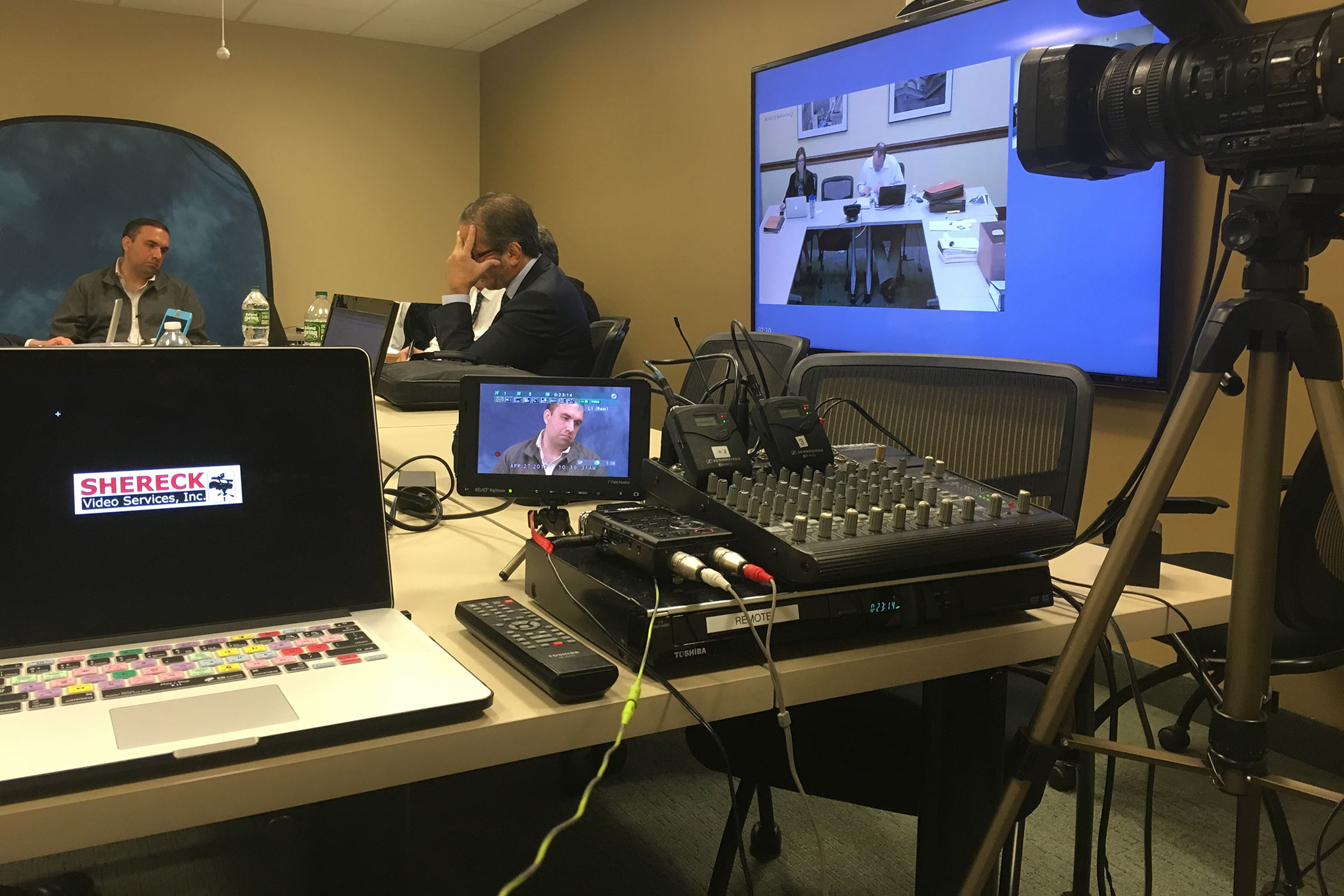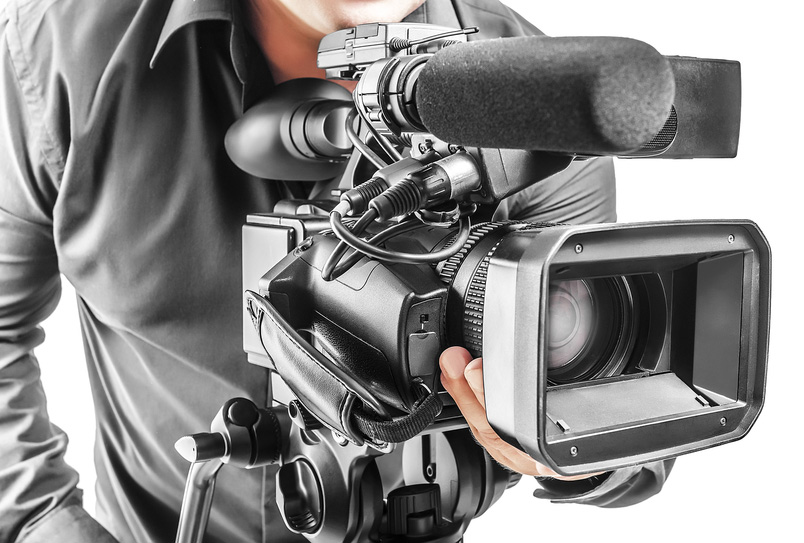Reliable Legal Videography to Enhance Case Presentations.
Reliable Legal Videography to Enhance Case Presentations.
Blog Article
The Duty of Legal Videography in Depositions and Trials
Lawful videography has actually arised as an essential tool in both depositions and tests, offering a diverse approach to documenting witness testimonies. By recording not just the spoken word however additionally the subtleties of non-verbal interaction, this tool enhances the trustworthiness of testimonies and protects crucial evidence for future process. As lawyers significantly identify its worth, it motivates a deeper assessment of exactly how these visual records can influence juror understandings and trial end results. What ramifications might these developments hold for the future of legal technique?
Value of Lawful Videography
Lawful videography plays a pivotal function in the documents and presentation of depositions and trials. This specialized field incorporates technological skills with lawful understanding to produce a reliable record of process that can substantially influence case outcomes. The appearance of legal videography boosts the understanding of witness testament, enabling jurors and judges to observe not just the talked words but additionally the temperament, emotions, and body language of the witnesses.

The significance of legal videography expands past the courtroom; it also plays a vital duty in maintaining proof for future reference, whether for allures or additional lawsuit. Its assimilation right into the legal procedure is crucial for ensuring a fair and accurate representation of the facts, eventually contributing to the quest of justice.

Refine of Legal Videography
While catching the subtleties of depositions and trials, the process of legal videography includes several important steps that ensure high-quality, accurate recordings. At first, a professional lawful videographer prepares by evaluating the case materials and understanding the particular needs of the deposition or trial. This prep work consists of familiarizing themselves with the participants and the context, which assists in capturing essential details.
On the day of the recording, the videographer sets up the essential tools, which generally consists of high-definition cams, microphones, and proper illumination. Ensuring optimal angles and sound high quality is crucial, as it straight affects the effectiveness of the recording. The videographer interacts with lawyers and participants to establish procedures, making sure that everybody recognizes the recording process.
During the deposition or trial, the videographer diligently tape-records the process, paying close focus to both spoken and non-verbal cues. legal videography. This includes capturing the attitude and reactions of witnesses and lawyers. After the session concludes, the videographer might modify the video footage for quality and compliance with lawful requirements, creating an end product that properly reflects the procedures for future referral and use in lawful contexts
Benefits in Depositions
The incorporation of videography in depositions uses numerous advantages that improve the general process of gathering evidence. One main benefit is the ability to catch witness testimonies with aesthetic and auditory fidelity, giving a more precise depiction of the witness's behavior, tone, and body language. This multidimensional technique allows attorneys and courts to evaluate trustworthiness better than traditional written transcripts alone.
In addition, videographed depositions work as an effective tool for protecting statement. Should a witness become not available for trial, their recorded deposition can be played in court, ensuring that their proof remains easily accessible and relevant. This aspect considerably decreases the threat of shedding vital details that could impact situation results.
Furthermore, using lawful videography advertises far better prep work for lawyers. Evaluating video clip footage permits legal groups to analyze and fine-tune their methods, determining toughness and weaknesses in their cases. This primary benefit can lead to even more compelling presentations in court.
Finally, videography enhances the total expertise of the deposition process, instilling self-confidence in clients about his regarding the thoroughness of their legal representation. By leveraging technology, lawful specialists can substantially boost the efficiency of depositions.
Influence On Trials
In lots of tests, the assimilation of videography can dramatically influence the discussion of evidence and the jury's understanding. Lawful videography captures witness testaments and important proof in a dynamic style, permitting jurors to involve with the material on multiple degrees. This aesthetic element boosts the storytelling aspect of a test, providing context and psychological vibration that standard text-based evidence may do not have.
Moreover, video clip recordings can work as powerful devices for impeachment during interrogation. When inconsistencies arise in between a witness's previous statements and their courtroom testimony, video proof gives an objective referral that can guide jurors' opinions. This immediacy and quality can bolster the reputation of an event's story while simultaneously weakening opposing arguments.
Additionally, using videography can help streamline complicated info, making it a lot more obtainable to jurors that might battle to comprehend detailed information presented only via spoken statement. By combining visuals with auditory details, legal videography can improve retention and understanding, inevitably influencing the jury's decision-making procedure. The influence of videography in tests expands beyond mere aesthetics; it plays an essential role in forming the lawful landscape and results.
Future Trends in Legal Videography
As we look toward the future of lawful videography, a number of arising trends assure to reshape its function within the court. One significant fad is the assimilation of man-made click over here now intelligence (AI) in video clip evaluation and modifying - legal videography. AI can streamline the procedure of determining crucial minutes in taped depositions, permitting lawyers to swiftly access relevant material, therefore enhancing effectiveness in case preparation
Furthermore, the increase of virtual reality (VR) and increased fact (AR) technologies is expected to transform how jurors experience evidence. By immersing jurors in a simulated setting, these innovations can supply a much more extensive understanding of complex scenarios, bring about more enlightened deliberations.

In addition, the increasing demand for remote depositions, sped up by the COVID-19 pandemic, will likely continue. Lawful videographers will certainly need to adjust to new software program and systems to ensure premium recordings in digital setups.
Lastly, the growing focus on information security will certainly demand stricter protocols for saving and sharing video clip evidence. As the legal landscape advances, lawful videographers must stay abreast of these trends to maintain their significance and effectiveness in the judicial process.

Conclusion
In recap, legal videography serves a critical feature in the judicial process, boosting the honesty of depositions and tests. As innovation continues to advance, lawful videography is poised to image source further change its function within the lawful landscape.
Report this page